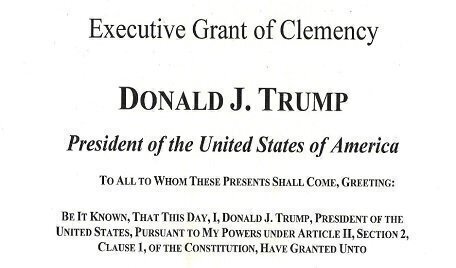
The Presidential Pardon: A Corridor of Mercy or a Path to Impunity?
Presidential Pardon: Historical Reflections
The blueprint of the United States constitution invests substantial powers in the hands of the country’s president. The ability to grant clemency falls among these critical powers, enabling a president to pardon federal crimes, except impeachment cases. This authority to forgive crimes has roots embedded in the English tradition, and it has been variously used by presidents right from George Washington to Donald Trump, notable for pardoning his political allies. A recent subject of much conversation is President Joe Biden’s decision to pardon his son, Hunter.
The Legal Framework of Presidential Pardon
As outlined in article II of the US constitution, the president’s pardon power pertains exclusively to federal crimes and does not encompass state-level offenses or impeachment proceedings. Over the years, there have been deliberations concerning the need for Congressional approval for pardons and exceptions in the case of treason. However, this power remains largely vested in the President, stemming from arguments presented by Alexander Hamilton during the constitutional convention.
Understanding the Presidential Pardon in the Context of Treason
A pivotal aspect of the pardon power debate revolves around instances of treason. Hamilton propounded the belief that the presidential pardon could serve as a valuable tool to negotiate peace and reconcile the nation during moments of domestic insurgency or rebellion.
Implications of the Presidential Pardon
While the presidential pardon offers a conduit for mercy and serves as a constitutional emergency power, it also brings under focus the idea of uncontrolled domestic intervention. Given the expansive latitude offered to the president’s discretion, the pardon power has often been drawn into critical debates, more so when it appears to be shielding close associates or supporters. The intricacies of the incarceration system and the pardoning process juxtapose the virtues of mercy and justice, emphasizing the magnitude and implications of this constitutional provision.
The Presidential Pardon: A Timeworn Tradition
Ever since George Washington issued the first presidential pardons in America’s history to people involved in the Whiskey Rebellion, this power has come to the fore in multiple key historical moments. One such moment followed the civil war when President Andrew Johnson pardoned all those associated with the rebellion. Later, Presidents Richard Nixon, Jimmy Carter, George HW Bush, Bill Clinton, and Barack Obama have each used this power during their terms in diverse contexts.
Comparative Reflections on Executive Clemency
While the executive’s power to pardon is a universally prevalent construct, the U.S. stands out with its provision allowing the chief executive to pardon without requiring input or sanction from other entities. Nations across Europe and other developed parts of the world often necessitate consultations before a pardon is issued. This requirement potentially limits the pardon power from being leveraged as a shield for political or personal interests, a risk present without such checks and balances.
The Future of Presidential Pardons: A Discourse
The discourse surrounding the presidential pardon remains a subject of profound legal interest. From debates on the limitations of pardon power to discussions on the ethics of self-pardoning or pardoning family members, legal academia continues to scrutinize this unique authoritative privilege. As our democratic ethos evolves, making pardons increasingly transparent and accountable is crucial to the pursuit of justice, equity, and fairness. It is our collective responsibility to gradually refine, if not radically reshape, this power always to serve the interests of justice foremost.
Originally Post From https://www.theguardian.com/us-news/2024/dec/02/presidential-pardon-explained
Read more about this topic at
Overview of Pardon Power | Constitution Annotated
The presidential pardon power, explained


